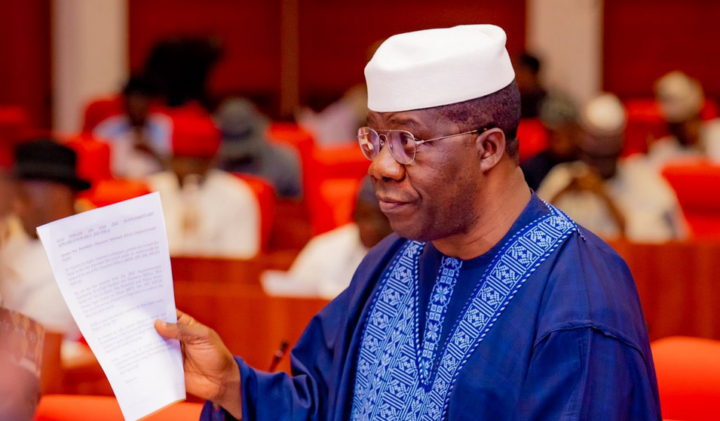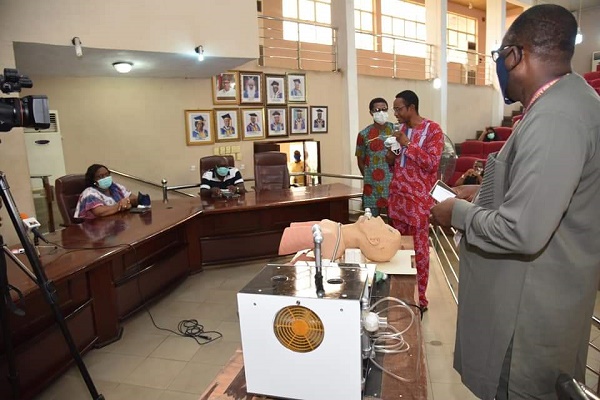BY ODEWALE ABAYOMI
At a recent forum on the African Continental Free Trade Area (AfCFTA) in Nairobi, Kenya, the Kenyan President, William Ruto, called on African leaders to expedite the adoption of the Pan-African Payments and Settlement System (PAPSS) by both their central and commercial banks; in order to decrease pressure and reliance on the bullish US dollar for intra-African trade. The Kenyan president is deeply concerned about the fragmented African payment landscape, with nearly 40 currencies being used across 54 countries, under diverse payment structures and cumbersome processing strategies – thereby making free trade a herculean task.
PAPSS, an African Union infrastructure developed in collaboration with African Export-Import Bank (Afreximbank) to complement AfCFTA trade was formally launched in January 2022, as a centralised financial market Infrastructure facilitating efficient and instant cross-border payments in local African currencies, minimising risks and promoting regional financial integration.
Ruto queried, “From Djibouti selling to Kenya or traders from Kenya selling to Djibouti, we have to look for US dollars. How is US dollars part of the trade between Djibouti and Kenya? Why?”
Advertisement
“That is why Kenya champions the Pan African Payment and Settlement System that is done by our own institution — the Afreximbank. Why, members? Why is it necessary for us to buy things from Djibouti and pay in dollars? There is no reason,” he stated.
Before PAPSS, Society for Worldwide Interbank Financial Telecommunication (SWIFT) was the primary platform for African banks to conduct cross-border transactions, with an estimated loss of close to $5 billion annually which undermines trade in African countries. Quite an irony that it is faster and cheaper to receive and transfer money from Nigeria to faraway western countries than intra-Africa.
Currently, only nine countries which are: the Central Banks of Nigeria, Ghana, Liberia, Guinea, Sierra Leone, The Gambia, Djibouti, Zimbabwe, and Zambia are part of the PAPSS’s network out of the 54 African countries billed to trade under AfCFTA through a single and open market that allows unrestrained movement of goods, services, capital, persons and supports investment opportunities. Every central bank is expected to enrol by the end of 2024 and all commercial banks to follow suit by the end of 2025. But, the adoption process is at a slow pace.
Advertisement
Before the fifteenth-century European voyages of exploration, there was a massive regional and international trading system connecting West Africa’s coastal areas to North Africa and beyond, through the Sahara. African rulers and merchants had already developed trade relationships with the Mediterranean, western Asia, and the Indian Ocean region. There were no trade and movement restrictions back then unlike today. At what point did Africa get it wrong?
Low industrialisation and intra-African trade
In 2021, Africa’s merchandise trade with the world stood at $1.18 trillion, with a trade deficit of about $35.27 billion. The heavy reliance on imported finished products has led to African countries being labelled as “import-dependent.” Suffice it to say the major impediment to a robust intra-African trade is the low level of industrialisation in Africa.
Demand and supply rules favour trade with more industrialised nations since they provide manufactured goods in exchange for Africa’s raw materials. Thereby corroborating the paltry 15.2% intra-African trade between 2015–2017, compared with America (47%), Asia (61%) and Europe ( 67%). In fact, as of Q2, 2021, no African country featured in Nigeria’s top ten import trading partners. Therefore, PAPSS is not a silver bullet to the intra-African trade until African industrialization improves.
PAPSS presence beyond Africa
Though, PAPSS is highly beneficial to small and medium business owners transacting across borders. The banks will have fewer limitations on the funds they set aside for settlements, unlocking more financial resources for value-added services and initiatives. Notably, these banks will minimise their dependency on scarce hard currencies for transactions between two African markets.
Advertisement
For instance, due to a shortage of dollars, a staggering $1 billion in airline funds was trapped in 20 countries around the world. Out of which more than $700 million was held up in 11 African countries, with Nigeria recording the highest withheld funds. Emirates Airlines had in November last year suspended flights to Nigeria indefinitely, citing the inability to repatriate its $260m trapped funds.
Airline operators are agitated because of the bitter experience of 2016 when Nigeria devalued its currency at a time airline funds were still trapped; causing apprehension among operators of losing several percentages of their trapped funds if Naira is devalued.
As a response, most airline operators have reduced the number of weekly flights and it appears they have blocked low inventories (low fares) in Nigeria, while the discounted rates remain available on other ticket-selling platforms in the neighbouring countries; an attempt to reduce the impact of trapped funds in the country. The whole problem boils down to dollar pressure and scarcity which PAPSS seeks to address.
PAPSS is making bold strides in expanding its presence beyond Africa towards eliminating huge demands for foreign currencies. In 2022, PAPSS announced its partnership with BUNA, a subsidiary owned by the Arab Monetary Fund (AMF). BUNA’s mission is to facilitate the seamless exchange of payments in local and major international currencies between financial institutions and central banks in the Arab region and other areas.
Advertisement
Through this collaboration, PAPSS and BUNA payment systems are set to achieve interoperability, enabling users to make fast, secure and affordable transactions in their local currencies between the African continent and the Arab region. This will likely bring about significant economic benefits to both regions and potentially ease the demands for foreign currency. This will hopefully phase out the trapped funds of Arab region-based airlines.
Furthermore, indications suggest that PAPSS is further making frantic efforts to collaborate with other regional and continental cross-border payment platforms in a bid to promote payments in local currencies for seamless investment and the growth of the African continent.
Advertisement
The urgency for African countries to adopt PAPSS
According to Ruto, “we are not against the US dollar. We just want to trade more freely. Let us pay in US dollars what we are buying from the US. But what we are buying from Djibouti, let’s use local currency”.
Benedict Oramah, president of the Afreximbank, emphasised that PAPSS will “domesticate African payments and reduce foreign debt”, raise government tax receipts, foster inter-African trade and strengthen the continent’s currencies.
Advertisement
Given the remarkable hedge against foreign currency shocks, one might have thought that African countries would have eagerly embraced this single payment system following its introduction in January 2022. Regrettably, the laudable payment structure has not gained wide adoption.
The pilot of PAPSS in the English-speaking West African Monetary Zone (WAMZ) is ongoing, but its acceptance in Francophone West Africa and other African countries remains uncertain. Delay or rejection by non-WAMZ African States could threaten the project. Full support from central banks and financial institutions across Africa is crucial for the success of intra-African trade.
Advertisement
ODEWALE Abayomi, a lecturer at Kaduna Polytechnic and a free trade fellow at Ominira Initiative, tweets @ODEWALEAbayomi
Views expressed by contributors are strictly personal and not of TheCable.
Add a comment






